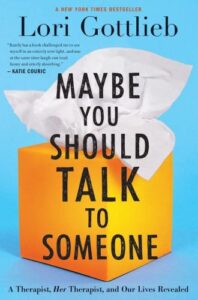Beautiful Boy by David Sheff
Book Author: David Sheff
Summary reviewed by:
Terrence Timmons
Terrence Timmons
Analyst
Bachelor of Arts (BA), University Of California, Santa Barbara 2019
With over 4 years of experience as an analyst. Terrence Timmons is committed to analyzing summaries without compromising on quality.
Beautiful Boy by David Sheff: Summary
Imagine embarking on a harrowing journey through the depths of addiction, not as an addict, but as a father helplessly watching his son spiral out of control. This is the heart-wrenching reality David Sheff unfolds in "Beautiful Boy," a memoir that delves deep into the tumultuous relationship with his son Nic, who is battling methamphetamine addiction.
Sheff doesn't just recount events; he embarks on a quest to understand the beast of addiction through exhaustive research into the science of the disease, incorporating findings from neuroscience to psychology, shedding light on how substance abuse rewires the brain and impacts behavior. With a background as a journalist, Sheff's expertise and dedication to uncovering the truth lend credibility to his exploration of this complex topic.
The book doesn't propose a one-size-fits-all solution to addiction but rather adopts a realistic approach to the problem, emphasizing the power of love, patience, and understanding in facing such challenges. Sheff shares his personal development journey, from denial and frustration to acceptance and action, offering insight into how families can navigate the treacherous waters of a loved one's addiction. Through his story, readers learn strategies for dealing with their own struggles, such as the importance of self-care, setting boundaries, and seeking support from communities like Al-Anon.
"Beautiful Boy" guides readers in applying these strategies to their lives, offering not only a compelling narrative but also practical steps for those facing similar issues. Sheff's honest and vulnerable narration makes the application of these strategies to everyday situations feel accessible and genuine, providing a beacon of hope for countless families engulfed in the darkness of addiction.
Beautiful Boy by David Sheff: Genres
Memoir
Biography
Health & Wellness
Self-help
Non-fiction
Beautiful Boy by David Sheff: Main Characters
David Sheff: The father, a journalist with a compassionate heart and a relentless quest for understanding, values honesty and relentless pursuit of knowledge to save his son. His deep dive into addiction research demonstrates his commitment to these values.
Nic Sheff: David’s son, whose journey through addiction and recovery is central to the story, embodies the struggle against the powerful grip of drug dependence. His resilience and moments of clarity, despite relapses, highlight his underlying strength and desire for a better life.
Beautiful Boy by David Sheff: Themes
Addiction: The book explores addiction not only as a personal struggle but also as a complex disease, using Nic’s descent into methamphetamine addiction as a case study. Sheff’s research into the science of addiction provides a broader understanding of its impact on the brain and behavior.
Love and Family Dynamics: The unconditional love David has for Nic underscores the narrative, showcasing the strength and perseverance needed when facing a loved one’s addiction. This theme is exemplified in David’s relentless efforts to support and understand Nic, despite the turmoil his addiction brings to the family.
Recovery and Hope: Through the ups and downs of Nic’s battle with addiction, “Beautiful Boy” presents recovery as a nonlinear process marked by setbacks and successes. The theme of hope is woven throughout the narrative, offering a message of resilience and the possibility of redemption.
The Power of Knowledge: Sheff’s commitment to understanding addiction through scientific research and personal inquiry highlights the importance of knowledge in combating the stigma of addiction and finding pathways to recovery. His approach demonstrates how armed knowledge can empower families and individuals facing similar battles.


Beautiful Boy by David Sheff
Date Published: February 1, 2008
Disclaimer: As an Amazon Associate I earn from qualifying purchases.




